Diversity and the UK fashion and textile industry
30/06/2020
How can the UK fashion and textile industry encourage greater diversity?
Over the last few weeks we have witnessed some horrific events across the world since the tragic death of George Floyd. We have also seen the most incredible movement of people from all walks of life, showing a renewed determination to make changes to end racism and create a more diverse and fair world for all.
At UKFT, we are proud that over 60% of our team are women, that we employ members of the LGBTQ+ community and that our staff live and work across the UK. But we are very conscious that there are no people from BAME backgrounds within the team or our Board. This will change.
To help us and the industry more broadly, we have been listening to a group of BAME industry leaders who have shared with us their experience of the UK fashion and textile industry and what action they would like to see the industry take to create a real, positive change.
We are determined to encourage a new diverse range of talent to join the sector. We fully recognise that we have work to do internally to create a strong framework that will better help people from diverse backgrounds succeed in all levels of the industry. These stories are just one of the steps we are taking to inspire change and make this happen. There is a long road ahead but together we will make a difference.
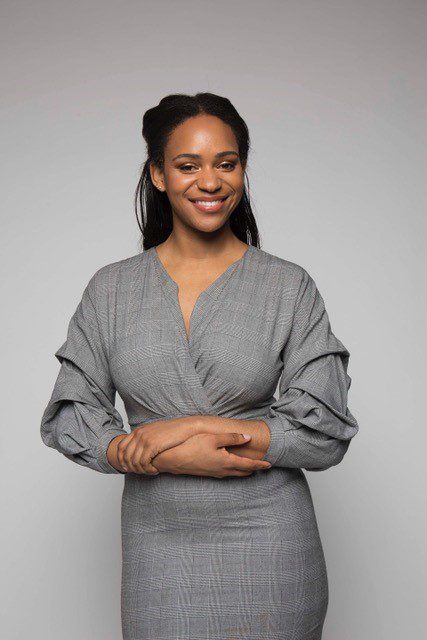
Faith Johnson: CEO, Caramel Rock – educational charity providing training and job opportunities in the fashion and textile sector
Faith is an Arts and Cultural Leader, a cultural consultant and social entrepreneur. Her mission is to empower young people and support people into fashion creating a level playing field for all, addressing diversity in the fashion industry, socially and culturally.
What has been your experience of diversity in the UK fashion and textile industry to date?
Representation and inclusion in fashion was a priority for me before I had the language to express it. It always confused me that the industry didn’t look like the world I live in.
The fact that there are diversity heads and fashion week opportunities for a diverse range of cultures is a great step, but unfortunately not enough. When will talent and quality of product look through a new lens? When will the door be opened to BME participants on a better and greater scale? I have seen first-hand some of the best talent that would never get the chance to trade internationally.
I have spent over a decade working towards supporting young people from BME communities to access the industry along with their peers who may have had a better start in life. My hope is we can reach a point where we push past the buzz word of BME and work towards a better and inclusive sector which I do believe British fashion is trying to do. This isn’t about publications or high-profile models, this is for me about, brands, international trade and technical skills development which are all areas that have a long way to go in being inclusive.
If you could ask the UK fashion and textile industry to make a positive change to encourage greater diversity of new entrants to the sector what would you ask for?
More opportunities for BME representatives to advise on improving representation in the sector.
Black people, are often marginalised, misrepresented and stereotyped by the world of fashion. The exhibition Get up, Stand up at London’s Somerset House looked at the past 50 years of black creativity, and touched on the representation of black people in fashion (or the lack of it).
You have leading business schools who all run scholarships and programmes exclusively for BME candidates in order to encourage more groups to participate and enrol. It’s not just about representing black people positively. It is also about a deeper level of understanding.
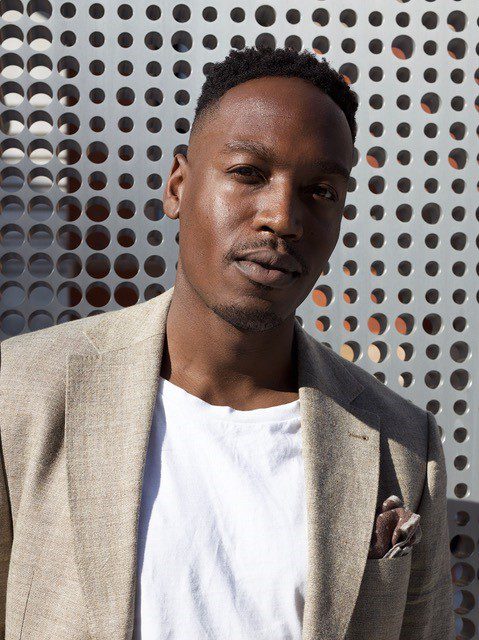
Bola Odusina: Influencer, Content Creator and Model
Bola is passionate about menswear particularly premium and luxury brands. He has worked with a number of British brands including Globe-Trotter, Hackett, Private White VC and more.
What has been your experience of diversity in the UK fashion and textile industry to date?
The UK fashion industry is slowly becoming more diverse. It is very encouraging to see people of different ethnic groups working with fashion brands in the UK. This is visible on two levels: internally, the people brands choose to employ and externally, the people brands choose to promote their products.
I have been fortunate enough to work with some fantastic brands who champion diversity. That being said, I do believe there is still a lot more to be done. There are a huge number of brands who think of diversity as a tick box exercise and occasionally show a diverse mix of people for a particular project and then quickly resume business as usual. This typically does not represent the wonderful multicultural society we live in.
I have seen a very inclusive range of models on social media but I would like to see this extended to companies ecommerce websites so that they both reflect the same message. I’m often inspired by Edward Enniful, editor-in-chief of British Vogue and Virgil Abloh, CEO of Off-White artistic director at Louis Vuitton – two key figures at the forefront of fashion. The industry should be much more inclusive and there is a long way to go.
If you could ask the UK fashion and textile industry to make a positive change to encourage greater diversity of new entrants to the sector what would you ask for?
I think it is important to lead from the top. Leaders in the boardroom and positions of power have the ability to spark real change. This is visible at companies like Louis Vuitton – Virgil has changed the dynamic of the company and during his tenure as artistic director, diversity is no longer a topic but is ingrained in all collections. Having a diverse leadership team is a powerful way to ensure brands move forward with inclusivity.
It is also important to engage ethnic minorities at the grassroots level (schools and colleges) to encourage greater diversity into the fashion industry. Workshops are a fundamental tool to raise awareness of what is like to work in the industry. On the topic of raising awareness, it would be fantastic to see fashion exhibitions highlighting the work of ethnic minorities. This could inspire new entrants to want to get involved with the industry.
Ultimately diversity needs to be ingrained in each and every brand to represent the society we live in. Education is key, it starts with brands being willing to broaden their knowledge on racism and unconscious bias which may exist and then being willing to implement real change.
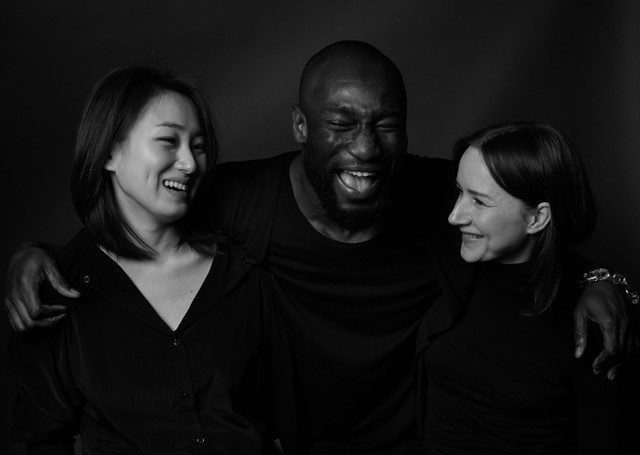
(Photo: Marcin T Józefiak)
Nosakhare Osadolor: Creative Director, Nosakhari – a high end leather goods brand and development/production unit
Nosa is attracted to difference and continuous learning with a passion to ignite individuality and self-expression through his work.
What has been your experience of diversity in the UK fashion and textile industry to date?
From the outset my sole focus has always been to ignite individuality and self-expression through my work. Working with extremely talented people from diverse backgrounds has given me a really deep appreciation for diversity.
Through this experience, I am constantly reminded that everyone irrespective of their colour or culture is 10/10 somewhere.
I am also learning to fully embrace and celebrate my difference, and to me — the celebration of difference means, embracing and celebrating those around you who help to make life and work a little bit more colourful and fulfilling, irrespective of their ethnicity.
Above all, I have learnt that celebrating and embracing diversity allows one to move from seeing things in just black and white to seeing things in high definition colours.
If you could ask the UK fashion and textile industry to make a positive change to encourage greater diversity of new entrants to the sector, what would you ask for?
To avoid missing out on the many benefits of diversity, I believe industry leaders and key decision makers need to take active steps to Welcome, Encourage, Embrace, and Celebrate diversity into more senior positions as this will inevitably reduce blind spots and question some of the myopic and archaic ways of thinking. I believe this will also help to limit the unintended consequences of implicit bias which affects us all.

Sital Punja FRSA: Director, Threads London Limited – a high end CMT manufacturer
Sital is an ethically-principled business owner who believes that the relationship between designer and maker is equal and collaborative.
What has been your experience of diversity in the UK fashion and textile industry to date?
Diversity in the fashion industry is limited to the manufacturing sector, which is traditionally seen as low skilled and low paid. BAME communities fill this labour market across the country whereas designers and production managers tend to be Caucasian. When trying to buy out a prestigious designer brand that I had helped develop, although I placed the best offer, I was referred to as “a little Indian girl” and refused the sale.
If you could ask the UK fashion and textile industry to make a positive change to encourage greater diversity of new entrants to the sector, what would you ask for?
- Support diversity in decision making roles within designer brands by promoting their achievements to offer role models and exposure of BAME within this sector.
- Include diversity on the Board of Directors of UKFT to ensure BAME perspectives are heard and can be considered when setting strategy.
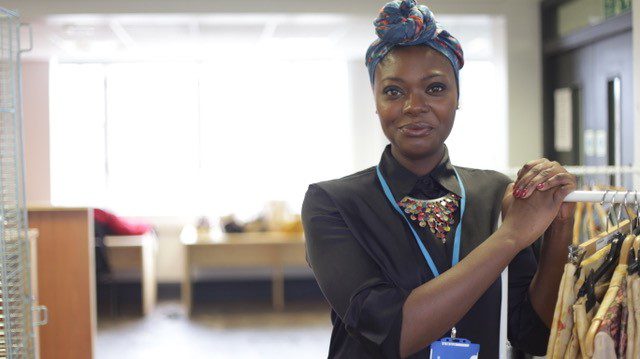
Valerie Goode: Ethical Designer/ Founder Kitty Ferreira UK & CocoCollective
Kitty challenges how one consumes fashion from seed to shopfloor.
What has been your experience of diversity in the UK fashion and textile industry to date?
Fashion has had an ‘elitist’ mindset, whether that be the notion that you would have to come from a wealthy background in order to sustain yourself in the arts, personal experiences of being the only designer of African/ Afro-Caribbean descent in my various work places, to presenting a mix of ethnicities in my lookbooks, yet only the white models will be selected for magazines. The list is endless and it is one of the reasons I went into Ethical Fashion hoping that elitism would be challenged and done away with. We are still learning. Being ethical is to also understand and dismantle the social constructs that allows for this disparity in wealth and wellbeing across the global fashion industry that fast fashion perpetuates. For this, one needs to look at history: British history, imperialism and where the notion of ‘elitism’ comes from.
If you could ask the UK fashion and textile industry to make a positive change to encourage greater diversity of new entrants to the sector what would you ask for?
Last year I had found a 10,000 sq ft building with the support of Lewisham council to run a community project, IG:@cococollective_org, to celebrate and honour the origins of textile manufacturing and the great work people of colour occupy in the ethical and sustainable arena. It also serves as a catalyst for the younger generation to view themselves using their heritage to form the foundation of their creative thinking, which is often overlooked in mainstream media and education. We also ran workshops and an in- house repair and mend service, collaborating with #lovenotlandfill clothing banks to encourage the local community to extend the lifecycle of clothing.
UKFT could support more of these types of initiatives.
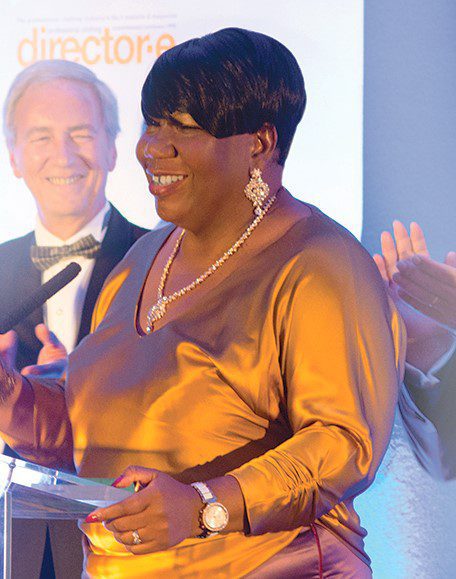
Yvette Ashby: Founder and CEO of Director-e Magazine & PCIAW
Yvette is CEO of the Professional Clothing Industry Association Worldwide (PCIAW) and has actively encouraged diversity in the professional clothing industry through the Professional Clothing Awards VISION (PCA) and collaborations with Universities and Colleges.
What has been your experience of diversity in the UK fashion and textile industry to date?
I own and have run Director-e for 22 years, a magazine which is dedicated to the textile industry under my own business Marston Consulting Ltd. I think we still have a lot of work to do to ensure full diversity in the UK generally and the textile industry specifically. Companies that I work with are uniting to agree that racism must be stamped out.
Kindness and being black has seen me being taken advantage of in business. I have had to adapt to this. My first experience of overt racism was during my first job interview in publishing where being a black woman came as a shock to them. It was not just the fact that I was a woman in a male industry that made me unusual (and therefore more determined), I was also a black woman. I took the job but was suddenly aware that I was different and may be treated differently going forward. Nowadays people are used to meeting intelligent black women but sadly that has not always been the case.
My Mum and Dad arrived in the UK as part of the Windrush generation as Mum was a nurse and Dad a builder. At school I didn’t experience racism, but I am aware that recent events have prompted people to re-evaluate subtle racism they didn’t recognise at the time.
I am so pleased to say that I’ve never experienced racism in the UK fashion and textile industry. However, I will never know if my career would have taken a different or more rapid path if I had been a white male.
What I wanted to achieve when I set up my own business was to give everybody the opportunities that I’ve had. I have always encouraged diversity and I started the PCA Vision for young designer’s award 6 years ago. One of our success stories is an Asian student Mariah Esa who won one of our PCA Vision Awards and went on to do incredibly well and had her worked published in Vogue.
If you could ask the UK fashion and textile industry to make a positive change to encourage greater diversity of new entrants to the sector what would you ask for?
My focus now is on manufacturing in the UK encouraging all young designers and technical students into our industry. However, this needs to be backed up by the Government. It saddens me deeply to see talented graduates working in casual jobs to make ends meet instead of setting the textiles world alight. Equal opportunity should be given to every single student regardless of colour or background. I used to make all my own clothes until I left home, and therefore my roots are so deeply embedded in the textile industry.
Having started out in the publishing industry I was headhunted by Malcom Gill to run Company Clothing magazine and its exhibition – which gave me the ideal opportunity to combine my two passions – textiles and publishing. With more people like Malcolm Gill in the industry we can flourish He was a wonderful man who simply recognised my skillset and potential. Put simply, I found someone who believed in me and that’s all I needed. We all need that one person who believes in us and recognises us for our worth – that person for me was Malcolm. I urge industry peers to see talent regardless of colour or sex.
I pray for people to take action and positive steps, whether these are baby steps or using more public platforms. We all need to be aware that racism and inequality comes in many different forms – not straightforward name calling. It can be as subtle as limiting career prospects, or as extreme as whole countries not having access to adequate healthcare.
Our students should not feel that they must hide themselves away – we are all equal and deserve equal opportunities. I am very motivated to be the person who provides equal opportunities, and I hope and pray that the whole world is taking steps towards being on the same page. I would like to see the UK textile industry actively encourage diversity and multi-racial talent. I still see black women as a minority in the industry, but I am hoping this will change moving forward.
I think Martin Luther King Jr said it best: “CHANGE HAS GOT TO COME “
Next steps
We welcome all comments and engagement with this article and will be co-ordinating a response to summarise what we have heard and crucially, what UKFT can begin to do to enact change.
One of the common threads we see across the blogs, articles and feeds of BAME activists is a request for people to educate themselves further about the history of racism, the current societal structures that prevent a level playing field and some of the injustices that we are all trying to fight against.
Further reading
Here are some suggested resources (there are many more out there):
Antiracism Resources – A list of resources for business, parents and individuals compiled by Sarah Sophie Flicker and Alyssa Klein in May 2020.
Organisations supporting antiracism
Black Lives Matter – international movement
Show Racism the Red Card – UK education charity
The Stephen Lawrence Charitable Trust – transforming young lives in the UK
Case Studies on organisational change
A case study from The Pipeline on how women of colour can break through to senior roles when an organisation addresses the issue head-on and takes a muscular approach.
Margaret McDonagh, Co-Founder of The Pipeline, explains why Unconscious Bias Training doesn’t work, and gives you all the information you need to prevent your organisation launching another costly tick-box exercise that won’t change behaviours.
